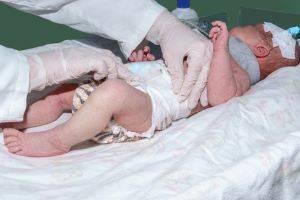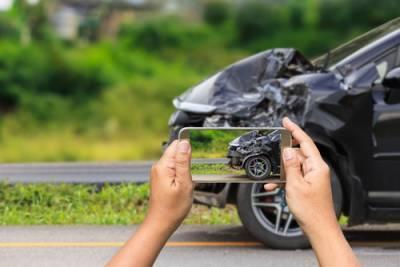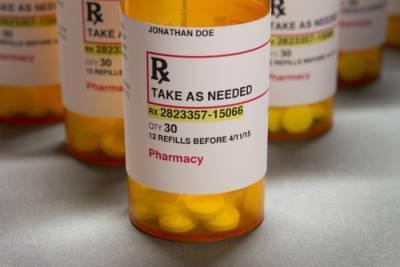Recent Blog Posts
Big Healthcare Attempts to Deny Victims of Malpractice the Right to a Jury Trial
 Private equity firms are expanding into healthcare at an alarming rate. In the past 10 years, they have purchased more than 4,000 Women’s Health Clinics, and current estimates have the industry owning more than 10% of the United States’ dermatology market. In the past 5 years alone, private equity has invested more than $10 billion in medical practices. And, as they expand into healthcare, they’ve brought their ruthless business tactics with them.
Private equity firms are expanding into healthcare at an alarming rate. In the past 10 years, they have purchased more than 4,000 Women’s Health Clinics, and current estimates have the industry owning more than 10% of the United States’ dermatology market. In the past 5 years alone, private equity has invested more than $10 billion in medical practices. And, as they expand into healthcare, they’ve brought their ruthless business tactics with them.
The private equity business model is well-known: buy loads of fledgling businesses for cheap, group them together, frantically cut costs, and sell high to a bigger investment firm. Applying that model to healthcare not only results in substandard care, but it also results in a deprivation of constitutional rights.
I am primarily talking about mandatory arbitration clauses, an industrywide favorite amongst the private equity firms. Private equity attempts to use these clauses to cut business costs by drastically decreasing injured plaintiffs’ ability to receive just compensation from a jury caused by medical negligence.
Robinson Helicopter Company: The Deadliest Helicopter Manufacturer in the World
 Robinson Helicopter Company opened shop in 1973. Its business model: mass-produce simple, low-cost helicopters and sell them to the civilian public at an affordable price.
Robinson Helicopter Company opened shop in 1973. Its business model: mass-produce simple, low-cost helicopters and sell them to the civilian public at an affordable price.
From a numbers standpoint, it worked.
Robinson released its first model, the R22, in the late 1970s, and it released the R44 in 1993. Both models dominated the competition and became the best-selling civilian helicopters of their time. The R44 retains that title to this day, partly due to its being one of the cheapest helicopters on the market.
But cheap mass-production comes at a cost. On top of being the best-selling civilian helicopter in the world, the R44 is also the most lethal.
Between 2006 and 2016, Robinson R44s alone were involved in 42 deadly helicopter crashes. That is an average of 1.6 deadly crashes per 100,000 hours flown, a rate nearly 50% higher than that of the other dozen most common civilian models.
Federal court finds an Exception to Preemption in Case involving Man Seriously Injured in an Accident Involving a Broker, Motor Carrier and Truck Driver
By: Heather A. Begley
 As trucking injury transportation attorneys, we represent individuals from Illinois and nationally who have been injured in motor vehicle accidents involving trucks. Injured plaintiffs are permitted to proceed with lawsuits against brokers in truck accident cases, according to a recent decision in the Ninth Circuit Court of Appeals, Miller v. C.H. Robinson Worldwide, Inc., et al. No. 19-15981 The plaintiff suffered serious injuries when he was struck by a semi-tractor trailer. A freight broker serves as an intermediary between a shipper who has goods to transport and a carrier who has capacity to move that freight. The freight broker in the Miller case, C.H. Robinson, arranged for the trailer to transport goods for Costco Wholesale, Inc. The plaintiff alleged that C.H. Robinson negligently selected an unsafe motor carrier. The United States District Court for the District of Nevada initially dismissed the plaintiff’s claim based on the Federal Aviation Administration Authorization Act of 1994 (the “FAAAA”), finding that state law claims that are “related to a price, route, or service of any… broker” are preempted. The appellate court reversed that finding based on an applicable exception: “the safety regulatory authority of a State with respect to motor vehicles”. Congress intended to preserve the States’ broad power over safety, a power that includes the ability to regulate conduct not only through legislative and administrative enactments, but also through common-law damages awards. This is an important finding on behalf of individuals who are injured in catastrophic motor vehicle accidents involving trucks wherein a broker was used to assist in the transport of goods.
As trucking injury transportation attorneys, we represent individuals from Illinois and nationally who have been injured in motor vehicle accidents involving trucks. Injured plaintiffs are permitted to proceed with lawsuits against brokers in truck accident cases, according to a recent decision in the Ninth Circuit Court of Appeals, Miller v. C.H. Robinson Worldwide, Inc., et al. No. 19-15981 The plaintiff suffered serious injuries when he was struck by a semi-tractor trailer. A freight broker serves as an intermediary between a shipper who has goods to transport and a carrier who has capacity to move that freight. The freight broker in the Miller case, C.H. Robinson, arranged for the trailer to transport goods for Costco Wholesale, Inc. The plaintiff alleged that C.H. Robinson negligently selected an unsafe motor carrier. The United States District Court for the District of Nevada initially dismissed the plaintiff’s claim based on the Federal Aviation Administration Authorization Act of 1994 (the “FAAAA”), finding that state law claims that are “related to a price, route, or service of any… broker” are preempted. The appellate court reversed that finding based on an applicable exception: “the safety regulatory authority of a State with respect to motor vehicles”. Congress intended to preserve the States’ broad power over safety, a power that includes the ability to regulate conduct not only through legislative and administrative enactments, but also through common-law damages awards. This is an important finding on behalf of individuals who are injured in catastrophic motor vehicle accidents involving trucks wherein a broker was used to assist in the transport of goods.
UBER ON THE HOT SEAT FOR EMPLOYMENT PRACTICES
 By: Eddie Hettel
By: Eddie Hettel
On May 5, 2020, the People of the State of California filed a lawsuit for injunctive relief, restitution, and penalties against Uber Technologies, Inc., Lyft Inc., and 50 individuals whose identities remain private. The suit alleges that the defendants made calculated business decisions to misclassify their on-demand drivers as independent contractors rather than employees and continue to do so in violation of California law.
By classifying their workers as independent contractors, Uber and Lyft evade workplace standards and requirements such as minimum wages, overtime premium pay, reimbursement for business expenses, workers’ compensation coverage for on-the-job injuries, paid sick leave, and wage replacement programs like disability insurance and paid family leave.
Since the California Supreme Court’s landmark, a unanimous decision in Dynamex Operations W., Inc. v. Superior Court (2018) 4 Cal.5th 903, rehg. denied (June 20, 2018) (“Dynamex”), workers are generally presumed to be employees unless they can overcome this presumption by establishing each of the three factors embodied in the strict “ABC” test laid out by the Court. The California Legislature’s Assembly Bill 5, which took effect on January 1, 2020, enacted to curb the serious problem of employee misclassification, also adopts this test.
Social Distancing in Illinois’ High Court – Oral Arguments to Take Place via Zoom
By: Eddie Hettel
 The COVID-19 pandemic has altered day-to-day life across the globe. With traditional face to face interactions coming to halt, schools, businesses, and governments have worked tirelessly to find innovative ways to continue their operations. The Illinois Supreme Court is among this group, and for the first time in history, will hold oral arguments for the month of May via Zoom teleconference.
The COVID-19 pandemic has altered day-to-day life across the globe. With traditional face to face interactions coming to halt, schools, businesses, and governments have worked tirelessly to find innovative ways to continue their operations. The Illinois Supreme Court is among this group, and for the first time in history, will hold oral arguments for the month of May via Zoom teleconference.
In an effort to practice social distancing while continuing to conduct court proceedings for eager litigants, the Illinois high court has adopted this contemporary solution to keep its doors open.
Chief Justice Anne M. Burke said:
These are extraordinary times, but what we have found is that we can keep our traditions the same. Holding oral arguments via Zoom would have sounded beyond our abilities a few months ago, but now feels almost normal. The court has found that a lot of our regular work – including oral arguments – can be done remotely while still keeping people safe from COVID-19.
Illinois Supreme Court Denies Hospital’s Petition for Leave to Appeal in Birth Injury Case
 In December 2019, Tomasik Kotin Kasserman secured an appellate victory in the Fifth District in a medical negligence case involving injuries suffered by a newborn child during labor and delivery. Recently, the Illinois Supreme Court denied the defendants’ petition for leave to appeal, solidifying the Fifth District’s unanimous decision in favor of the plaintiff, Crystal Williams.
In December 2019, Tomasik Kotin Kasserman secured an appellate victory in the Fifth District in a medical negligence case involving injuries suffered by a newborn child during labor and delivery. Recently, the Illinois Supreme Court denied the defendants’ petition for leave to appeal, solidifying the Fifth District’s unanimous decision in favor of the plaintiff, Crystal Williams.
On June 3, 2007, then-26-year-old Crystal, who was pregnant with twins, went into labor. Her OB/GYN, Dr. Bradley Tissier’s office, instructed her to go to St. Elizabeth’s hospital in Belleville, Illinois where medical staff would prepare a “double set-up” delivery, i.e. a delivery which involves a first team of doctors preparing the mother for vaginal delivery with a second team ready to perform an immediate cesarean section if difficulties arise during childbirth. Twin A was born without difficulty. Twin B (Jerrin), however, was positioned in a persistent transverse lie, meaning Jerrin’s head was to one of his mother’s sides and not towards the pelvis. A baby cannot be birthed vaginally when in transverse lie. But, instead of performing a C-section, Dr. Bradley Tissier attempted to rotate Jerrin into the vertex (head down) position, failed, and thereafter, ultimately delivered via footling breech (feet down) extraction. During the delivery, Jerrin’s umbilical cord became compressed, and as a result, he suffered serious, lifelong injuries.
Illinois Supreme Court Rules Post-Accident Photographs Admissible Without Expert Testimony
By: Eddie Hettel
 The Illinois Supreme Court’s decision in Peach v. McGovern clarifies that expert testimony is not required to admit post-accident vehicular photographs. Previously, Appellate Courts had differing opinions as to whether a party was required to present expert testimony about a photograph before it was admitted into evidence.
The Illinois Supreme Court’s decision in Peach v. McGovern clarifies that expert testimony is not required to admit post-accident vehicular photographs. Previously, Appellate Courts had differing opinions as to whether a party was required to present expert testimony about a photograph before it was admitted into evidence.
The Court held that photographic evidence is admissible if it has a reasonable tendency to prove or disprove a material fact at issue in the case but may be excluded when irrelevant or immaterial or if its prejudicial nature outweighs its probative value. Peach v. McGovern, 2019 IL 123156, ¶ 27. In deciding the admissibility of post-accident vehicular photographs, trial courts must determine whether the photos make the resulting injury to the plaintiff more or less probable and whether the photos may be relevant with regard to impeachment. See id.
The essential question in deciding the admissibility of post-accident vehicular photographs is “whether the jury can properly relate the vehicular damage depicted in the photos to the injury without the aid of an expert.” Id. at ¶ 35. This is a question of law that must be decided by a trial judge.
Rideshare Services Identified as Cause of Increased Traffic Fatalities
 A recent study revealed that app-based rideshare services account for a three percent annual increase in traffic-related fatalities. This translates to roughly 987 traffic-related fatalities each year resulting from rideshare services such as Uber and Lyft.
A recent study revealed that app-based rideshare services account for a three percent annual increase in traffic-related fatalities. This translates to roughly 987 traffic-related fatalities each year resulting from rideshare services such as Uber and Lyft.
Although many supporters of the rideshare industry note the perceived benefits such as a possible decrease in drunk driving and added convenience to riders, the numbers tell a more startling story. Aside from the numerous assaults that occur each year in Ubers and Lyfts, data reveals that these services have also made our roadways less safe.
Rideshare services increase the number of people on the road for several reasons: 1) there are more drivers on the road, and 2) people who would otherwise have taken public transportation, walked, or biked are choosing rideshare services. Data reveals that after the introduction of ridesharing, traffic fatalities steadily increased as our roads become crowded with more vehicles.
SCOTUS Protects State Court Claims against Big Pharma
 Manufacturers of prescription drugs often claim that they cannot provide a warning label in accordance with state law because the changes would be prohibited by federal law, a defense known as impossibility preemption. Impossibility preemption is a situation where compliance with both federal and state regulations is a physical impossibility for one engaged in interstate commerce.
Manufacturers of prescription drugs often claim that they cannot provide a warning label in accordance with state law because the changes would be prohibited by federal law, a defense known as impossibility preemption. Impossibility preemption is a situation where compliance with both federal and state regulations is a physical impossibility for one engaged in interstate commerce.
In Wyeth v. Levine (2009), the U.S. Supreme Court held that drug manufactures who claimed impossibility prevention were required to produce “clear evidence” that the FDA would have prohibited their additional warning as required under state law. This ruling lacked a strong test to determine what “clear evidence” meant, which caused confusion and allowed drug manufacturers to bring forward weaker claims of impossibility preemption.
The Merck Sharp & Dohme Corp. v. Albrecht decision in May of 2019 provides those injured by prescription drugs with much-needed clarity in combatting a claim of impossibility preemption. The Supreme Court stated that “the possibility of impossibility” is not enough, meaning that it is not sufficient to say that it was “possible” that state and federal law were in conflict. Under Merck, drug manufacturers claiming impossibility preemption must now provide clear evidence of an actual conflict between state and federal law that makes it impossible to comply with both.
Lyft is Hiding a ‘Sexual Predator Crisis’ – More Lawsuits
 Lyft is facing waves of lawsuits alleging that the ride hailing giant has failed to adequately protect its passengers and has ineffectively responded to reports of sexual assault. On Wednesday, September 4th, 2019, a lawsuit was filed in California state court on behalf of 14 women who say they were raped or sexually assaulted by their Lyft drivers in 2018 and 2019. The ride-hailing giant was more recently hit with five additional lawsuits filed by women who allege that they have been raped or sexually assaulted. These women are not alone – Lyft received nearly 100 complaints of sexual assault against its drivers in California alone between 2014 and 2016.
Lyft is facing waves of lawsuits alleging that the ride hailing giant has failed to adequately protect its passengers and has ineffectively responded to reports of sexual assault. On Wednesday, September 4th, 2019, a lawsuit was filed in California state court on behalf of 14 women who say they were raped or sexually assaulted by their Lyft drivers in 2018 and 2019. The ride-hailing giant was more recently hit with five additional lawsuits filed by women who allege that they have been raped or sexually assaulted. These women are not alone – Lyft received nearly 100 complaints of sexual assault against its drivers in California alone between 2014 and 2016.
The suit alleges that Lyft often fails to report these crimes to police, and it has adopted policies to silence victims who report their experiences. “Lyft has made a concerted effort in the media, in litigation and in criminal cases to hide and conceal the true extent of sexual assaults that occur in their vehicles,” the complaint says.

 312-605-8800
312-605-8800




 312-605-8808
312-605-8808






